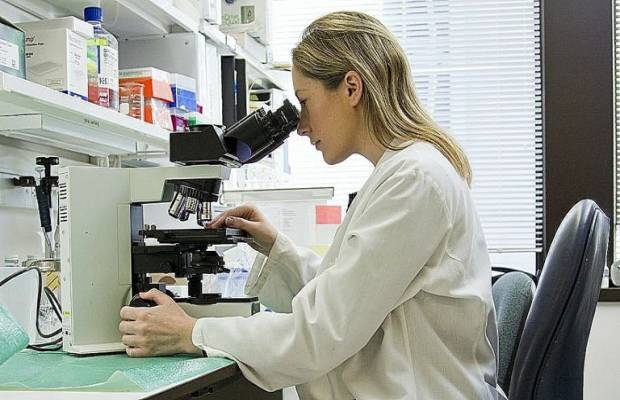11 Essential Qualities Of A Good Scientist

A scientist is a person who engages in the practice of science, which is the public testing of theories using methodical procedures including observation, controlled experiments, and inference to produce substantiated responses to practical theories. Therefore, someone with specialized knowledge and experience in a scientific topic is a scientist.
For this discussion, a scientific degree might not be sufficient to identify someone as a scientist. Experience conducting scientific experiments and research is necessary to become a scientist. The goal of science is to ascertain reality. Only via investigation, observation, and experimentation of ancillary procedures to the study of science can the truth be found.
A science degree is not always necessary to become a scientist, though it could be helpful. Some scientists do not hold science degrees, but the vast majority do.
A scientist uses the scientific method to find answers to questions about the cosmos that can be measured. A scientist might be engaged in a novel study and the development of a useful theory or creation.
Additionally, he might be someone who applies the findings of other scientists' studies. What then is the criterion for being a competent scientist? By its very nature, science has certain requirements. Certain characteristics must be present in a scientist for him to properly achieve these expectations.
READ ALSO » 5 Good Eating Habits
These are qualities that one might associate with a good scientist. These qualities will always affect the final quality and correctness of a scientific endeavour.
11 Essential Qualities Of A Good Scientist
- Curiosity
- Attention to Detail
- Excellent Communication Skills
- Patience
- Critical and logical thinking
- Persistence
- Courage
- Target-Oriented
- Analytical
- Open-Minded and Bias-Free
- Skepticism
1. Curiosity
A competent scientist ought to be naturally curious and in awe of the world. Asking universal questions and finding the answers are at the heart of science. It is thought that the most crucial quality for a scientist to possess is curiosity. A good scientist needs to be curious to learn, and much more so to supplement his prior knowledge. It makes sense that science would be credited as the mother of all creations.
Curiosity is the seed of invention and the means of putting ideas into action. Inquisitiveness is the act of curiosity. It is human nature to want to know as much as possible about something by asking questions about it and looking into ways to get the best possible response. This is precisely the function of science. Absent this quality of natural curiosity, one cannot call themselves a practising scientist. A good scientist needs to be insatiably curious.
2. Attention to Detail
Due to the very nature of science, every detail must be considered when conducting experiments, making observations, and using other scientific methods. As such, attention to detail is essential for becoming a successful scientist. One must be well-informed in that particular field to be detail-oriented. As a result, a scientist needs to be very knowledgeable in science.
3. Excellent Communication Skills
Science demands effective communication to be practised effectively. Communication is the means by which problems are identified and theories are developed. Additionally, communication is used to convey experiment results. Science requires communication as a fundamental component. Therefore, a fool scientist needs to be a skilled communicator. Miscommunication has a catastrophic influence on science's goal and methodology.
4. Patience
Science requires a great deal of time and effort to reach the final stage. Therefore, one needs patience to become a good scientist.
5. Critical and logical thinking
Science depends on what the human mind is capable of deducing. Therefore, a smart scientist must reason logically in order to arrive at the most accurate result feasible. The dots have to always line up. Critical thinking skills are essential for scientists. This has to do with posing queries and delivering answers. A competent scientist needs to be receptive to the established, unquestionable scientific procedure.
6. Persistence
READ ALSO » Top 10 Best Foods For Good Digestion
The advancements we witness today did not come about overnight. They are the results of concepts that were developed and put through scientific trials. Even after the desired outcome was obtained, more study was conducted in an effort to improve it.
Science's triumphant inventions are all the result of perseverance. Without persistence, Michael Faraday would never have discovered something as wonderful as electric current. Science is an extremely up-and-down process. Failures could happen at any stage of the procedure. The last stage of science is reached in relation to a specific project when one persists in trying new things. Since science never gives up, neither should a scientist.
7. Courage
Science carries a lot of dangers. Taking an interest in the sciences in spite of all those risks takes guts. Even though there are risks associated with participating, such as failures, wasting experimental resources, personal damage, and so forth, only a brave person would do so. Being courageous is a crucial quality of a skilled scientist.
8. Target-Oriented
A competent scientist needs to be focused. There must be a clearly stated goal that is meant to be accomplished. Therefore, rather than being deterred by the procedure, he must be someone who is driven by the outcome. While achieving the goal may never end in satisfaction, the allure of having a goal in sight inspires bravery and perseverance. Thus, a scientist needs to be goal-oriented.
9. Analytical
A scientist needs to be capable of analysis. This is an essential ability for doing science. Analyzing date compositions and uses is a skill that a competent scientist needs for both experimentation and report writing. This also includes being able to solve problems and be organized.
10. Open-Minded and Bias-Free
A competent scientist should be someone who is prepared to examine novel and opposing viewpoints. Additionally, he needs to be objective and neutral in his scientific reporting.
11. Skepticism
A reasonable degree of skepticism is a requirement for scientists. A scientist has to exercise skepticism occasionally, even when it comes to his own studies and findings. This is required to cast doubt on their study and even other accepted hypotheses, which will eventually lead to queries and the need to provide answers.
Even in cases where a result is conclusive, scientists will not accept a face value answer. Scientists ought to use caution when passing judgment, particularly when it is based only on conjecture. A scientist's opinion must be supported by verifiable data when it is communicated. This characteristic of skepticism is what spurs the need for additional inquiry, especially with regard to a reality that has already been proven, improving accuracy and the verifiable nature of science.
A competent scientist must be willing to take some chances, possess a strong foundation in science, a keen mind, and an intense desire motivated by a love of study. He needs to be insatiably curious, optimistically stubborn, and open to learning new things at all times.
A scientist need to be passionate about the science they study, practice, and work in. The only thing that can spark and maintain a person's interest in science is enthusiasm. These are the qualities that truly make science feasible; without them, there would be many anomalies and disagreements in the field of research.
